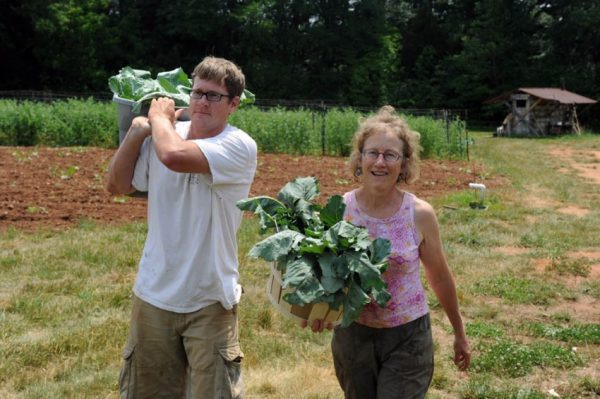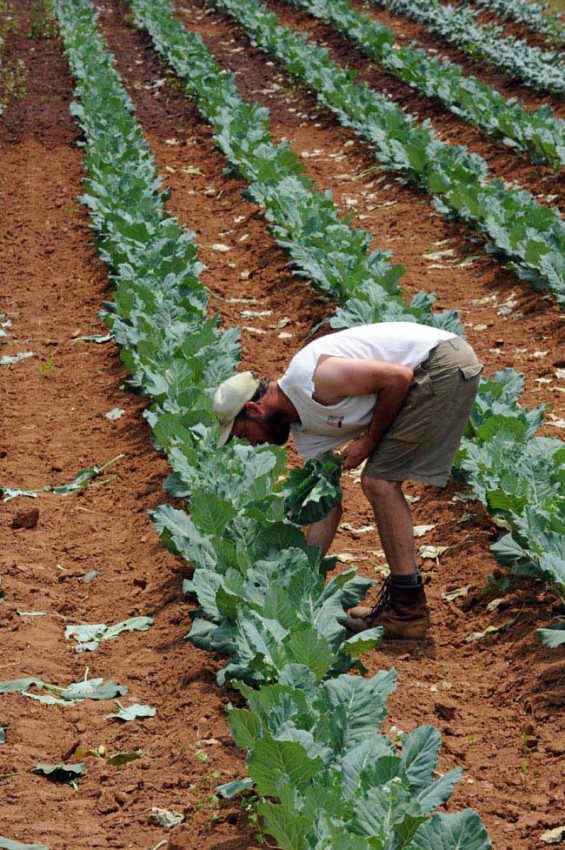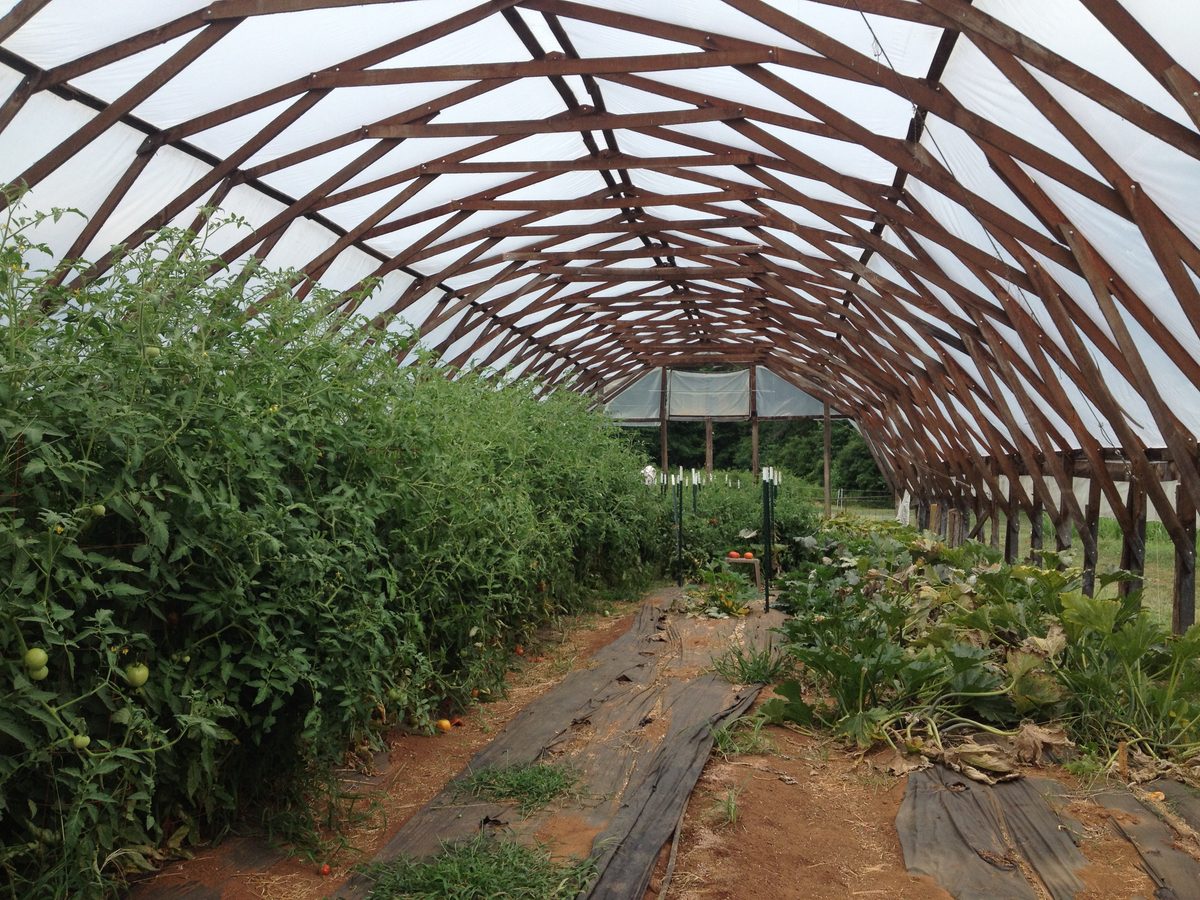Cabarrus’ Lomax farm faces uncertain future

Back in the woods off N.C. 49, the winding blacktop ends beside a greenhouse. Thomas Gentry, a UNC Charlotte architecture professor, is watering tomatoes on a humid July afternoon. A man in a work truck creeps along the gravel drive.
“The power back on?” he asks, pulling next to the greenhouse. Gentry nods. “Good.”
It’s been a common scene in recent weeks at the Lomax Incubator Farm near Concord in central Cabarrus County. The farm, on the brink of closure, has received an outpouring of support from neighbors, members of the region’s local foods movement, even Cabarrus County native Scott Avett of the Avett Brothers.
Cabarrus decisionCabarrus County Commissioners meet at 6:30 p.m., Monday, July 21, at the Cabarrus County Governmental Center, 65 Church Street S.E., Concord. More about region’s local farm movement: |
The county-run Elma C. Lomax Incubator Farm was out of power for eight days in peak growing season. That happened after Cabarrus County commissioners on June 16 voted 3-2 to approve a sweeping, $3.9 million budget cut affecting parks, libraries and economic development efforts. The budget measure eliminated county funding for the farm and cut off power July 1.
The three commissioners who voted for the cuts had been defeated in May’s primary elections. The commissioners have since reversed their decision to shut the power off. The county is allowing farmers to continue growing until the final vote on the budget July 21.
But the future of the farm, the only one of its kind in the area, is still up in the air.
Farm manager Aaron Newton, who lost his job July 1, says the farm will transition to a nonprofit model with the help of the Carolina Farm Stewardship Association. Newton is staying on as a volunteer to oversee those efforts, which he says are still in early planning stages.
“Everything is day-to-day at this point,” Newton said.
The farm cost Cabarrus County about $115,000 a year to run, Newton said. That included his $55,000 salary. The 30-acre farm’s purpose is to teach farming techniques and support startup businesses so they can take advantage of the burgeoning local foods economy in the Charlotte region. Since opening in 2009, Newton says, nine of the farm’s 33 students have begun growing on other land.
It’s the only place of its kind in the Charlotte region and one of only two in the state. The Breeze Farm in Orange County does similar work. In addition to teaching, the farm has provided space for local churches to build a food bank garden, and a local brewers’ association is experimenting with growing hops to sell to area breweries.
“We think of ourselves as a teaching facility, like a trade school,” Newton said. “The average age of a farmer in Cabarrus County is 59. If we’re serious about sustaining our local food supply, we need to provide some type of training.”
With that in mind, Newton said, the farm’s supporters hope it can partner with local community colleges and UNC Charlotte. Newton doesn’t have specific figures on the farm’s economic impact. He said it helped attract the Carolina Meat Conference in 2011 to Concord, which brought in $250,000 to the local economy.
You might see Lomax-grown produce at Charlotte-area farmer’s markets. One of the farm’s success stories, Joe Rowland, visits Atherton Market on South Boulevard in Charlotte most weeks. After a decade spent managing restaurants and grocery stores, Rowland started taking farming classes at the Lomax incubator in 2010. Four years later, he bought his own 18-acre farm in Gold Hill and started a delivery business, GO Local NC Farms. With a few hundred pounds of cucumbers and other vegetables stored in coolers, Rowland estimated he lost about $400 to $500 when the county cut off power for eight days earlier this year. More troublesome, he said, is the uncertainty it caused in his customers and contractors. Rowland reduced his schedule from weekly deliveries to every other week.
“The whole thing just kind of came at a terrible time,” Rowland said. “We make 30 to 50 deliveries a week. That’s 30 to 50 families that wouldn’t get their food. We had to stop everything in the middle of July and move freezers around. It had the potential to be devastating. The margins are so laser-thin on food, and we weren’t expecting those kinds of expenditures.”
Rowland’s GO Local business also supports the teaching aspects of the Lomax farms. For the first season, new farmers aren’t growing enough to sell much on their own, so Rowland will buy smaller amounts from them.
“It works really well,” Rowland says. “They [the new farmers] might say, ‘Hey, I’ve got 10 pounds of carrots coming in. What can I do with them?’ And I’ll just take them off their hands.”
Despite the uncertainty, Newton and the farmers working at Lomax remain hopeful for the farm’s future.
“I think the program might end up being a little bigger and better than before,” Rowland said of the move to nonprofit status. “The door is open to do a lot more things.”
Cabarrus County Commissioners are scheduled to take their final vote in the county budget at their meeting at 6:30 p.m., Monday, July 21, at the Cabarrus County Governmental Center, 65 Church St. S.E., Concord.
